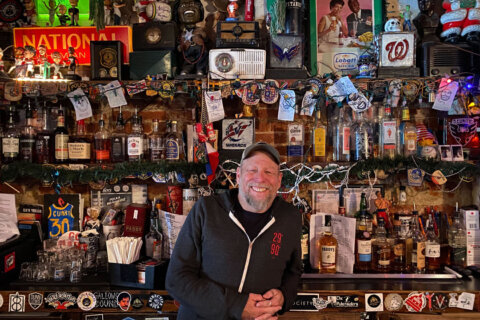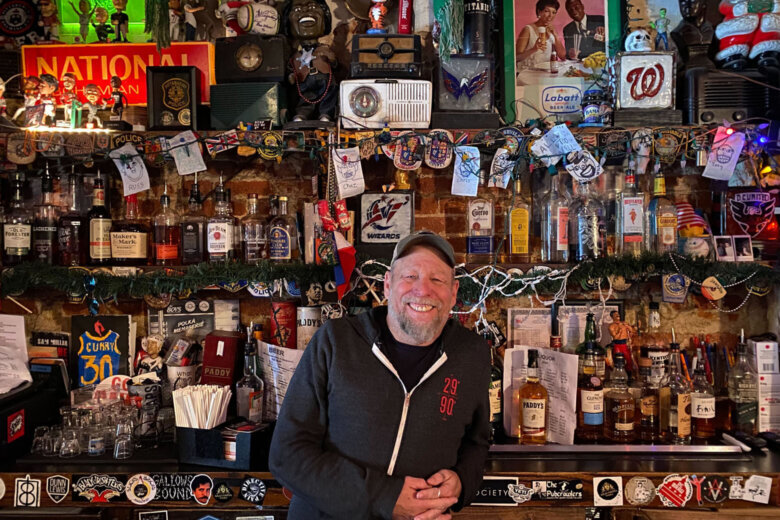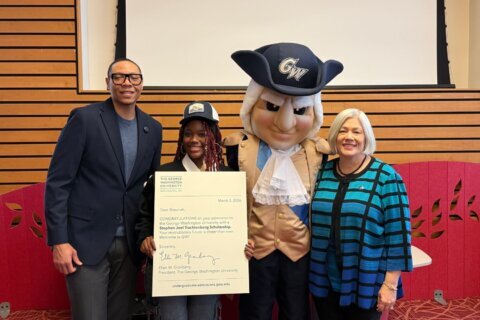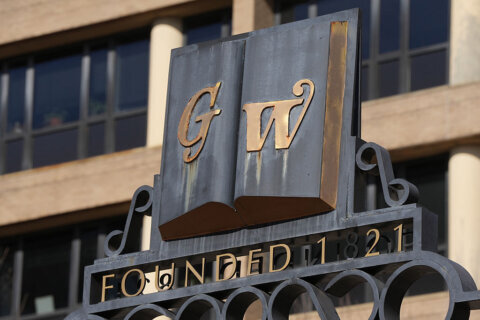
The last few years have been rough on bars and restaurants, and a recent survey suggests businesses operating in D.C. are hurting in the present and pessimistic about the future.
There’s no one reason, but rather a whole bunch of them that, combined, could lead to a drastic evolution after a tumultuous couple of years.
At least that’s the belief of some restaurant owners WTOP spoke with. Costs are up when it comes to food and drink, rent, labor and everything else associated with running a business. That means bars and restaurants have to raise their prices, too. But it’s a delicate balance.
“I’m not sure that everybody raising prices or adding service fees, or whatever they’re doing to try to combat this, I’m not sure that’s helping when people have decided, you know what, I just don’t need to go out all the time,” said Tony Tomelden, owner of The Pug on H Street in Northeast. He’s also the partner in a group that owns Brookland’s Finest in Northeast and Union Trust downtown.
He said at The Pug, his payroll has also gone up 65% since voters passed Initiative 82, which raised the minimum wage for tipped workers. And then there’s crime, which by the numbers has gone up. How people perceive that isn’t helping.
“One of the things that I’m trying to do on H Street and Capitol Hill is go back to being a neighborhood,” Tomelden said. “When we first opened here on H Street it was a destination. But now, there’s a ton of new high rises, and I’m going to concentrate on trying to get those folks that live close by to come in here.”
Greg Casten is the director of operations for a group that owns Tony and Joe’s and Nick’s Riverside Grill in Georgetown, Ivy City Smokehouse in Northeast, and The Point in Southwest. He said business is down at all four restaurants, those less so along the Georgetown waterfront.
“Traditionally, nobody would have considered that a 16-year-old would be carjacking somebody in the middle of Chinatown with a pistol,” Casten said.
But crime, or the perception, isn’t the only factor, nor is it just the rising cost of everything. More people working from home and not even going into the city isn’t helping either. He said even the legalization of marijuana means younger adults who would have gone to a bar before now have another alternative that didn’t used to exist.
“I think radical change is coming because restaurateurs — particularly and I’m speaking within the confines of D.C., which had that initiative 82, which has been game-changing and it accelerates the separation of fine dining and fast casual,” Casten said. “Restaurants as people know them in the future may not be the same as what they’re used to seeing today, except for on a very, very high end.”
He expects lots more fast casual spots and chains opening up in the years to come.
“You might be going into a place where there’s not a host and you seat yourself. And your menu is completely automated. And there’s ambassadors that are walking around to serve the food. And so instead of there being six, used to be tipped employees, now it’s one ambassador or two ambassadors that are making that and still living on service tips,” Casten said. “But the experience is more about ‘oh, do you have any questions on the menu? OK, there, you put your answer in here.'”
It’s a vision Tomelden had, too.
“The smaller places, I think that we are, unfortunately, going to go toward fast casual and big chains … and it’s going to be really complicated for a small place like this to figure it out,” he said.
“This place isn’t the kind of place that has a QR code. I don’t even know if we have the internet in here sometimes,” he added with a laugh. “I think the restaurant slowly will lose support staff, where the server will have to be the bar back, or the bus or the food runner and the server. Because I just don’t know how to make that all work with the higher payroll, with the cost of goods, with the liquor liability, insurance, all of these things.”









